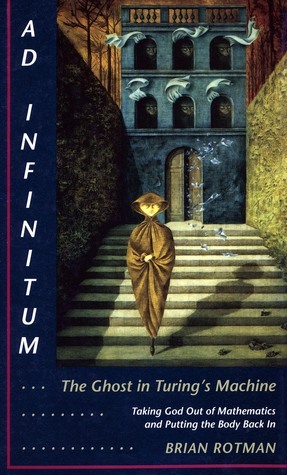What do you think?
Rate this book


224 pages, Paperback
First published September 1, 1993
Physicists usually have a notion of space that is continuous. I tend to agree with people like Steven Wolfram, who are very skeptical of [such] geometric notions. I think that geometry is the dynamics of too many parts to count… there are no infinities. If there were true infinities, you would be running into contradictions, which is in some sense what Gödel and Turing discovered, in response to Hilbert’s call… There is unboundedness, but if you have a language that talks about infinity, at some point that language is going to contradict itself, which means it’s no longer valid. In order to deal with infinities in mathematics, you have to postulate their existence [axiomatically], you cannot construct the infinity. – Joscha Bach on Lex Fridman’s podcast